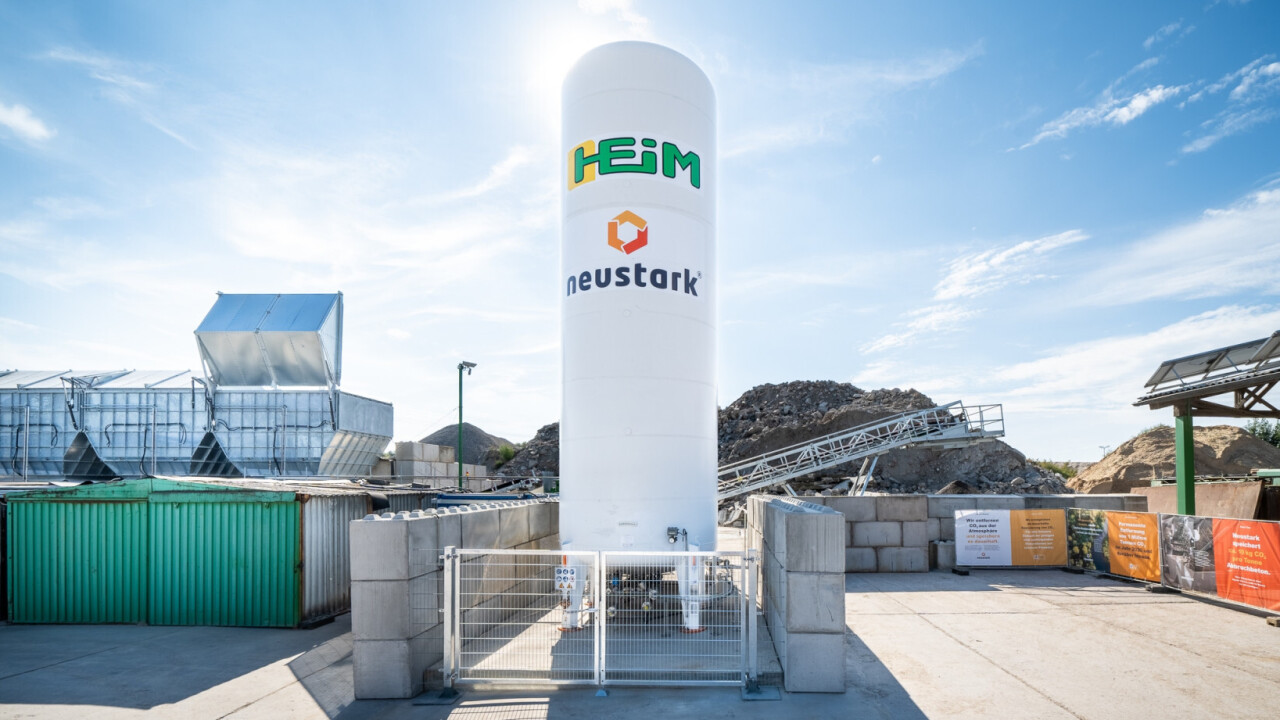
Swiss startup Neustark has raised $69mn to take its carbon capture technology global. Decarbonization Partners, a partnership between the world’s largest asset manager BlackRock and Singaporean investment firm Temasek, led the funding round.
Neustark captures waste CO2 from biogas production. It injects it into recycled concrete, which then gets reused to make new roads and buildings. The concrete stores the carbon for at least 100,000 years, even if it gets demolished.
“We turn the world’s largest waste stream — demolition concrete — into a carbon sink,” said Johannes Tiefenthaler, co-CEO and co-founder at Neustark.

Neustark has two kinds of machines. One captures CO2 at biogas plants and liquifies it. The company transports this pressurised carbon dioxide to its second device, located at a nearby concrete recycling facility. This machine mineralises the CO2 into limestone, where it is used to create new concrete.
The startup currently has 19 plants. They operate at biogas factories and concrete recycling facilities in Switzerland, Austria, Liechtenstein, and Germany. Some 40 new plants are currently under construction in Europe, it said.
Neustark will use the fresh funding to expand in Europe and “enter new markets in North America and Asia Pacific,” said Tiefenthaler.
The business of carbon removal
Neustark sells carbon removal credits to businesses looking to offset their emissions. The company has sold 120,000 tons worth of these credits to date. Its clients include Microsoft, UBS, and NextGen.
However, Neustark has only actually captured 1,819 tons of CO2, according to its website. Such a discrepancy is commonplace in the world of carbon credits.
Most startups today sell carbon removal credits through offtake agreements. Buyers purchase credits based on a guarantee that the carbon removal provider, in this case Neustark, will remove a certain quantity of carbon over the next, say, 6-10 years.
For major backers of the technology like Google, Meta, and Salesforce, securing a long term supply of carbon removal credits is an attractive proposition as they look to tackle the hard-to-decarbonise parts of their operations.
For Neustark, offtake agreements provide a key early revenue source, alongside private and public investment. “It allows us to scale up at speed,” a Neustark spokesperson told TNW via email.
However, from giant carbon-sucking machines and planting trees to throwing dust on soil, carbon removal technology is still unproven on a large scale. Some scientists fear that the lure of buying carbon removal credits will distract companies from investing in reducing their emissions at source.
Despite the uncertainty, billions of dollars in funding are flowing into the budding industry, spurred on by the IPCC’s Sixth Assessment Report. The landmark report cites carbon removal as key to limit global warming to 1.5C or below.
“We need to exponentially accelerate the removal of CO2 if we want to reach net zero goals by 2050,” said Tiefenthaler. “This target will only be possible by globally deploying highly scalable, measurable and commercially viable carbon removal solutions at the scale of millions of tons per year.”
Neustark aims to remove 1 million tons of CO2 by 2030.
Get the TNW newsletter
Get the most important tech news in your inbox each week.





